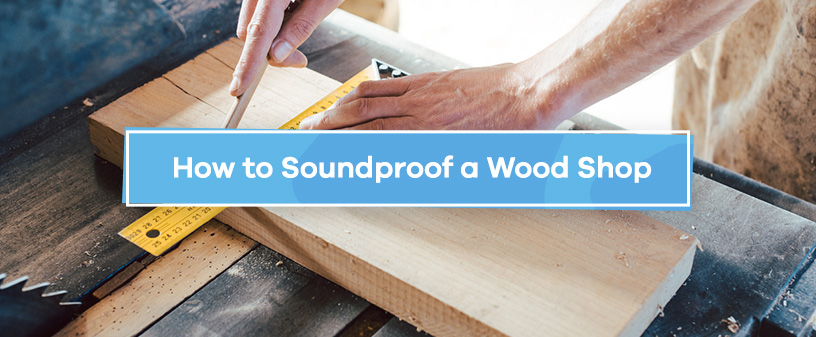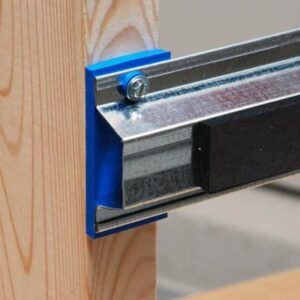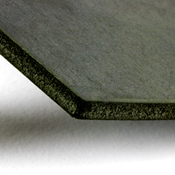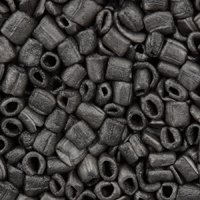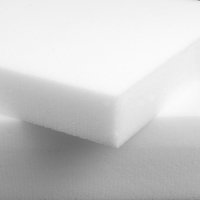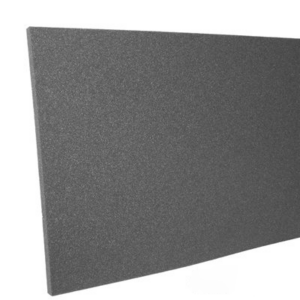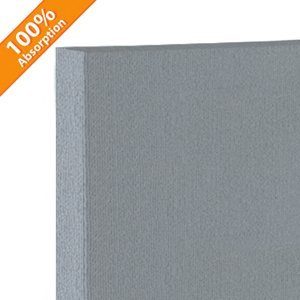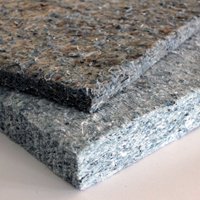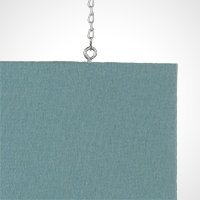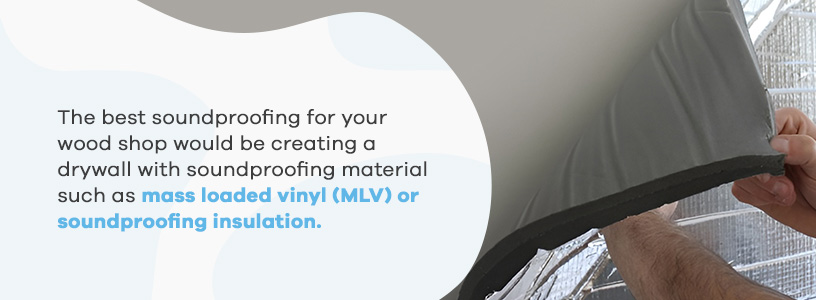
How to Soundproof a Wood Shop
Wood shops come in all shapes and sizes and whether you work in your basement, garage or an external structure, you’ll know that the whirring and howl from power tools create extensive wood shop noise. Reducing the noise that escapes your wood shop goes a long way to keeping your neighbors and household happy.
Keeping the peace and reducing noise-related stress are part of why soundproofing is worth the investment and time commitment. We explain the reasons for soundproofing, the steps and the materials you’ll need to complete the best soundproofing for your wood shop.
Wood Shop Soundproofing Products
Wood Shop Sound Absorption Products
Reasons to Soundproof a Wood Shop
When you start up your table saw, planer, power drills or belt sander, the noise is caused by the motor and other components. Once you start working, the noise levels increase, and the vibrations filter through the floor and wall materials.
While working, you should wear ear protection, especially if noise levels reach 85 decibels (dB) and when working for prolonged periods. For instance, a simple hand drill can be as loud as 98 dB, while a pneumatic precision drill is as loud as 119 dB, and most table saws sit at 100 dB. With each incremental increase of 6 dB, the noise level doubles.
When you soundproof your wood shop, you reduce vibration noise and sound reverberation in the room and reduce the effect on those around you. The benefits of minimizing shop noise include:
- Reduced noise bleeding out: Sound bleeds through any openings and even through surfaces like walls, doors and ceilings. By soundproofing, you prevent excess noise from escaping.
- Decreased noise entering: When you are doing precision work and need to think, cars driving by, people shouting and other external noise is a bother. Soundproofing your wood shop also helps to keep these out.
- Enhanced relationships with family and neighbors: By creating a buffer between you and the rest of your house and the neighborhood, you and they benefit from reduced noise — keeping everyone content.
- Improved internal acoustics: With treated surfaces and reduced vibrational noise, the acoustics inside your wood shop improve, as sound is absorbed and dampened rather than reflected.
- Boosted concentration and efficiency: With better internal acoustics, reduced disturbances from people asking when you’ll be done and the elimination of external noise, you are free to focus on your woodwork.
- Elevated compliance with noise control regulations: The United States has the Noise Control Act, and installing soundproofing ensures better compliance with state noise ordinances.
- Increased property value: If you ever hope to sell your house, added features like soundproofed workshops help to increase property value and appeal.
4 Steps to Soundproof a Wood Shop
When you soundproof a wood shop, there are several steps you need to take, as well as primary areas, such as doors, walls, ceilings and floors, that you need to treat to ensure the best soundproofing for a wood shop. The first steps to take before tackling the larger surfaces are:
- Identifying the sound source: If you work in your wood shop frequently, you likely know precisely which tools cause the most noise. Although you cannot prevent them from making noise, you can address the secondary noises.
- Address machine vibration: By implementing vibration isolation to suppress noise, you mitigate the trembling and vibrations caused by machinery. This includes placing rubber underneath machinery — flooring and rubber wheels — and dampening sound transferred to the surrounding items, such as metal cabinets. You can install sound-deadening and dampening materials strategically on machinery and compromised furniture.
Next, you may need to remove all tools, machinery and furniture or work around them while addressing each surface.
1. Wood Shop Walls
In most cases, the walls are likely uninsulated or require greater mass to block the sound waves from passing and dispersing outside the space. There are several ways to soundproof walls depending on your budget, type of space and if you are still constructing the wood shop or need to know how to soundproof existing walls in your shop.
The best soundproofing for your wood shop would be creating a wall that includes soundproofing material such as mass loaded vinyl (MLV) or soundproofing insulation. Alternatively, you could cover the walls with acoustic panels.
2. The Ceiling of Your Wood Shop
By treating the wood shop ceiling, you help prevent the noise from your machinery traveling up and the sound of footsteps, voices and other noises transferring into your shop. Even if your wood shop is not below another floor, it is still wise to add soundproofing materials, as most ceilings do a limited job of containing sounds.
There are different methods for soundproofing existing and new ceilings and you will need to assess which is best for your situation and budget. You may install a drop ceiling, hang baffles, attach acoustic paneling, or add soundproofing to the floor above.
3. Consider the Wood Shop Floor
Wood, concrete, and tiled floors heavily reduce acoustic quality in a room and can cause tremendous echo and transfer machinery vibration. A simple solution is to install rubber flooring or sound absorption flooring options that reduce vibration and cancel out sound wave reverberation.
When looking at how to soundproof a floor, many non-intrusive ways allow you to install directly onto existing flooring or incorporate versatile floor underlayment during construction.
4. Address the Wood Shop Door
There are several ways to soundproof a door that do not require extensive alterations to your existing door and they are easy enough to execute without breaking the bank. For instance, you can add a door sweep under the door, where the most significant gap tends to exist. Next, you can cover the entrance with acoustic panels, hang a soundproof blanket in front of the door, or attach it to the door.
Materials to Use When Soundproofing Wood Shops
The extent of your noise reduction needs, the size of your budget and the type of structure will help dictate what you need to minimize shop noise. However, some of the best materials for soundproofing are:
- Acoustic caulk and tape: Even during and after installation of soundproofing materials, acoustical sound sealants and sound deadening tape are your best friends to help bond and seal elements to stop sound leaking through gaps.
- Door sweeps: These help to seal any gaps between the door and the sills and help to prevent sound passing once the door is closed. You can install a range of door sweeps, including automatic options.
- Acoustic panels: For quick and easy soundproofing, you can add various types of acoustic panels to your walls and ceiling to combat noise and absorb sound. Different acoustic panel mounting techniques exist for attaching panels to walls and ceilings.
- Soundproofing barriers: Several soundproofing barriers are available, such as MLV, which offers straightforward installation for various surfaces, including walls, ceilings and floors. Additionally, you can get temporary options such as Quiet Barrier® Acoustic Quilts that provide convenient use and versatility, such as in front of doors.
- Soundproofing insulation: You can use Quiet Batt® Soundproofing Insulation on new and existing walls and ceilings. For existing surfaces, you need to install furring, add the insulation and then drywall over, creating a double wall. The benefits of this type of material are that you get soundproofing and absorption and insulation capabilities.
- Floor underlayment: Depending on the type of flooring you wish to install in your wood shop, adding the best flooring underlayment can improve the in-room acoustics. Alternatively, you can install it on the floor above to introduce a soundproof barrier between rooms that absorbs impact from above and blocks machinery noise from below.
Soundproof Your Wood Shop With Soundproof Cow
Whether you need to minimize shop noise at a commercial or residential level, Soundproof Cow offers the best soundproofing for wood shop noise reduction. However, because we know that all wood shops are different, we want to offer you the chance to request a free acoustic analysis before you get to work. This will help us give you an in-depth and accurate estimate for your project needs. Alternatively, if you’re ready to reduce your wood shop noise, shop our range of soundproofing materials to moove your soundproofing project along!


